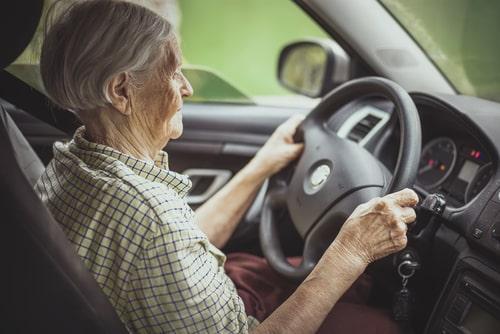203-661-6000
170 Mason Street, Greenwich, CT 06830
Signs an Elderly Driver Should Stop Driving
 According to national statistics, there were just under 48 million drivers over the age of 65 in 2020. That is almost 70 percent more such drivers than there were just 20 years ago. Unfortunately, older drivers are more vulnerable behind the wheel, having a higher crash fatality rate compared to that of middle-aged drivers. Almost 8,000 are killed each year in car accidents and another 200,000 are treated for crash-related injuries. Currently, Connecticut has no special restrictions for elderly drivers.
According to national statistics, there were just under 48 million drivers over the age of 65 in 2020. That is almost 70 percent more such drivers than there were just 20 years ago. Unfortunately, older drivers are more vulnerable behind the wheel, having a higher crash fatality rate compared to that of middle-aged drivers. Almost 8,000 are killed each year in car accidents and another 200,000 are treated for crash-related injuries. Currently, Connecticut has no special restrictions for elderly drivers.
Aging is inevitable, but how do you know when it may be time for an elderly driver to give up driving?
The Impact of Aging on Driving
As we age, our cognitive abilities can decline, as well as our vision and hearing, and this can have an impact on driving. Many older drivers also have issues with reflexes being slower so they do not react as quickly as they should to sudden activities on the road.
There is also often a decline in an older driver’s physical health. Some of the more common health issues they face that can interfere with their ability to safely operate their vehicle include:
- Arthritis
- Dementia
- Diabetes
- Heart disease
- Parkinson’s disease
In addition to the effects these health conditions can have on the driver, there are also the side effects of the medications they may be taking. Some of these side effects – blurred vision, drowsiness, confusion, and tremors – can be dangerous for a person driving a vehicle.
Signs that an Elderly Driver May Be at Risk
The ability to drive their own vehicle provides seniors with their independence. It allows them to run their own errands, visit with family, and participate in social activities. But when the effects of aging begin to have an effect on their ability to drive, it not only puts their life in danger but also anyone sharing the roads with them.
Some of the common signs that indicate it may be time for a family to talk to their elderly loved one about giving up the keys to the car include:
- There are new scrapes and dents on their vehicle.
- Items in the area where they park – mailboxes, fences, curbs – are also scratched up and dented.
- They miss or ignore traffic signs and lights and/or have an increase in traffic violations.
- They drive lower than the posted speed limit.
- They become lost even in areas where they should be familiar.
- They get the gas pedal and the brake pedal mixed up or press on both at the same time.
- They put their vehicle in reverse if they miss a turn or suddenly stop while driving.
- They become confused as they are driving, confusing entrances and exits, distances between vehicles, etc.
- They frequently drift into other lanes.
- There is a marked increase in “close call” accidents or actual fender benders.
Call a Greenwich, CT Personal Injury Attorney
If you have been injured in a car accident involving an elderly driver, you may be entitled to financial compensation for the losses your injuries have caused. Contact Ivey, Barnum & O'Mara, LLC today at 203-661-6000 to schedule a free consultation with one of our Fairfield County car accident attorneys and find out what your legal options may be.
Sources:
https://www.cga.ct.gov/2005/rpt/2005-R-0882.htm
https://www.cdc.gov/transportationsafety/older_adult_drivers/index.html













